Curious About Atlas?
Answer a few questions and an Atlas Representative will contact you for an estimate.
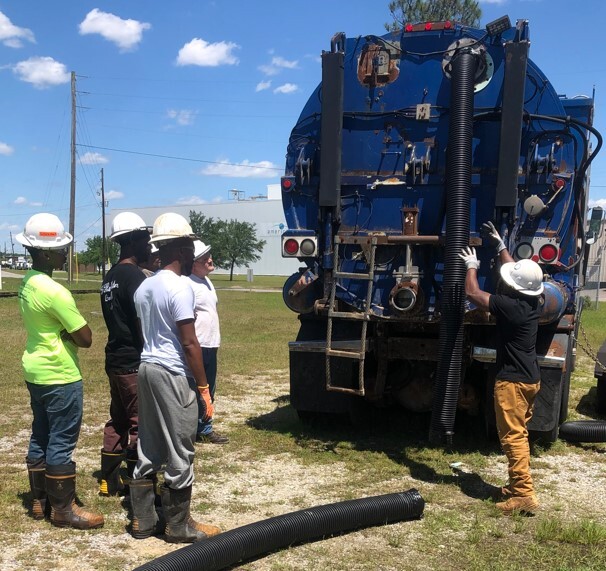
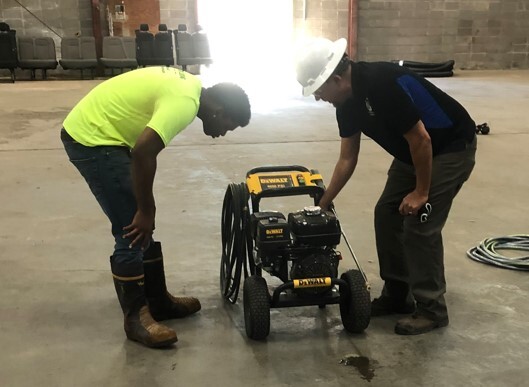
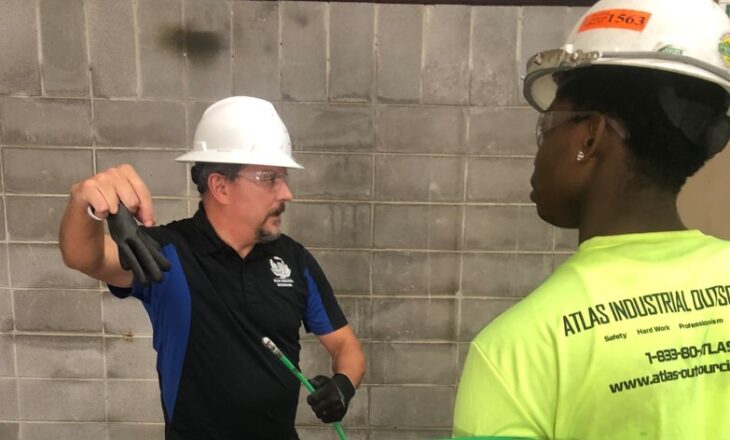
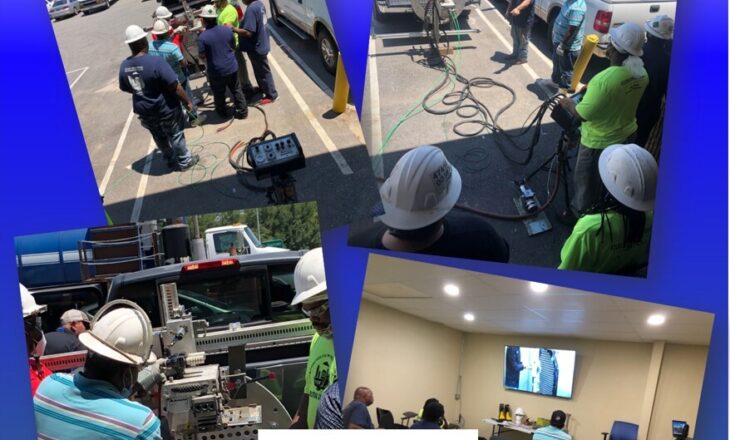
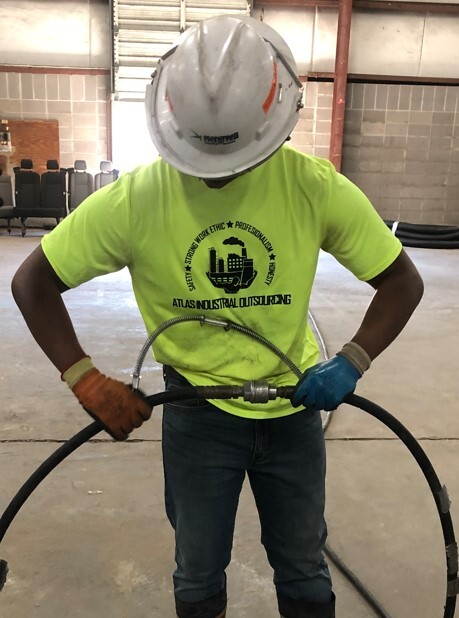
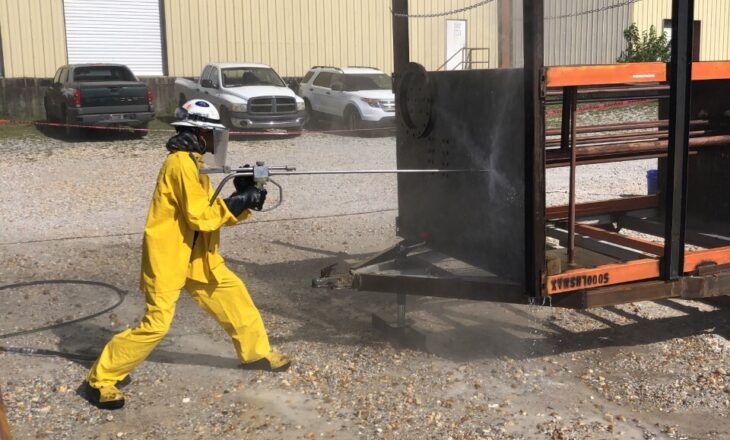
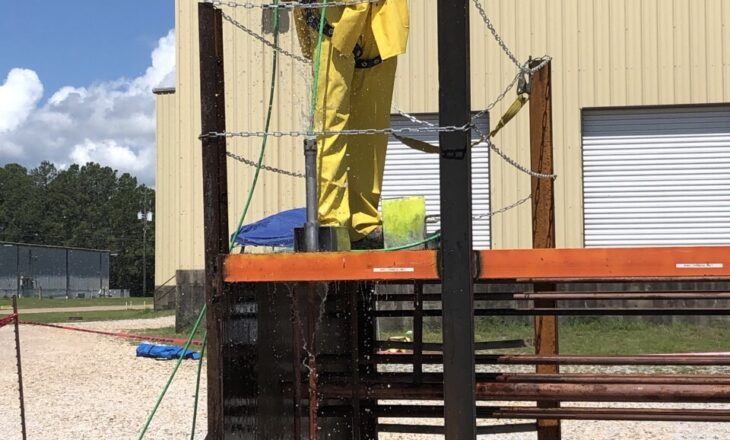
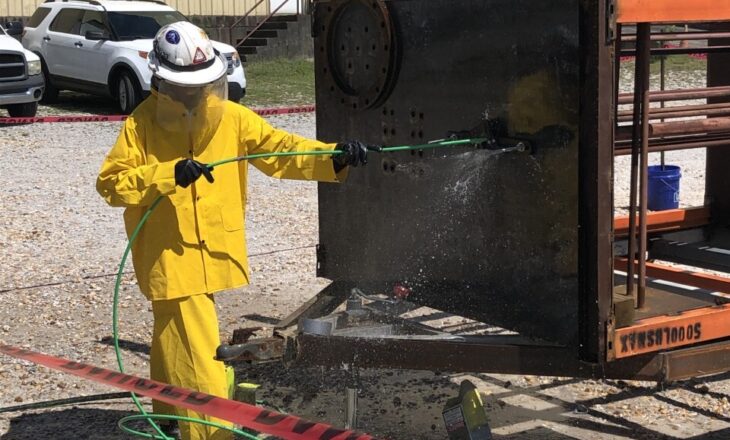
(JSA) is a procedure which helps integrate accepted safety and health principles and practices into a particular task or job operation. In a JSA, each basic step of the job is to identify potential hazards and to recommend the safest way to do the job.
(JSA) is a procedure which helps integrate accepted safety and health principles and practices into a particular task or job operation. In a JSA, each basic step of the job is to identify potential hazards and to recommend the safest way to do the job.
Employees will learn about OSHA’s Hazard Communication (HAZCOM) standard and the methods for learning about chemical hazards, including labels, safety data sheets (SDS) and hazard assessments.
This course discusses the various hazards that personal protective equipment is designed to protect the worker from and outlines the various pieces of personal protective equipment, such as hand wear, footwear, face protection, eye protection, garments, partial garments and other equipment used to protect the physical Body.
This course is intended as an overview of the basic elements of hearing conservation to include the methods of selection, use, and care of hearing protection.
According to OSHA, slips, trips and falls are the leading cause of injury and accidents for General Industry. This course focuses on prevention of injury for General Industry by teaching you the common exposures that lead to workplace accidents.
This course is an overview of the general elements of an effective respiratory protection program to include the methods of selection, use, care, proper fit and medical clearance of respirators in the workplace.
This course touches on several areas of consideration such as clean workplace, providing safe access to and egress form any horizontal or vertical surface on or through which a person walks, works, or gain access to a workplace location.
This course is designed to provide employees with the responsibility and obligation to stop work when a perceived unsafe condition or behavior may result in an unwanted event.
This course examines electrical hazards and stresses the importance of electrical safety. The course will cover the procedures necessary to work safety around electricity, include PPE, lockout/tagout and first aid.
This course is designed for those who are at risk for on the job exposure to blood and other bodily fluids in the workplace. The course teaches how bloodborne pathogens are spread, how to avoid exposure and what to do if exposed to infectious material. $25
This course is intended to help you recognize fire hazards and introduce you to basic elements of preventing fires in the workplace.
This course is required training for all personnel who are subject to lead exposure. This course communicates information such as methods of recognizing lead, health effects associated with lead exposure, how to minimize exposure, warning signs and labels.
This course covers the aspects for a competent person as required by OSHA standards and helps employees understand the concept of fall protection and how it applies to the industry.
This course teaches workers how to recognize and avoid cold related stresses. This course also teaches the early signs and symptoms of Heat/Cold related exposures.
This course covers OSHA’s standard which apply to nearly all workplaces in general industry. The course teaches hazard awareness, recognition, evaluation and control.
This course teaches the basic principles and key definitions of sign, signal and barricade safety.
This course will inform employees of the duties of confined space entrants, attendants and entry supervisors, as well as the hazards associated with confined space entry, permitting procedures, approval process, and measures necessary for protection, atmospheric monitors, testing, and use, and emergency response.
This course teaches you basic safety for working with ladders, with topics that include ladder hazards, the OSHA ladder standard, ladder selection, and ladder maintenance.
This module teaches you the understanding of Hydro-blasting processes and the understanding of its underlying theory.
This module teaches you the basic safety rules for Hydro-blasting. Also, an understanding of the correct PPE for hydro-blasting operations.
This course will inform employees of the duties of confined space entrants, attendants and entry supervisors, as well as the hazards associated with confined space entry, permitting procedures, approval process, and measures necessary for protection, atmospheric monitors, testing, and use, and emergency response.
Motorized Equipment, Scaffold & Aerial Lifts
This module teaches the different applications of Industrial Cleaning. Including Hydro-blasting, Water Jetting, Hydro-excavation, and Hydro-demolition.
This module teaches you the basic hydro-blast equipment requirements. Such as having high pressure, positive-displacement pump, shotgun, lances, foot box, dump valve and tips/nozzles.
This module teaches the roles and duties of each crew member on the jobsite. This module teaches workers how to recognize and avoid cold related stresses. This course also teaches the early signs and symptoms of Heat/Cold related exposures.
This module teaches the processes of setting up a job. Which include Paperwork, location, drainage, area isolation. This module teaches the processes and procedures from the time you arrive at the plant to the time of setting up a job.
This module will teach you the proper procedures for operating the Hydro-blasting equipment. From Shot gunning; to Pipe Cleaning; flex lancing; Tank Cleaning; Housekeeping and Variances.
This course teaches a variety of Key Words and their respective definitions for Vacuum Work.
This module teaches extensive vacuum safety considerations.
This course will inform employees of the duties of confined space entrants, attendants and entry supervisors, as well as the hazards associated with confined space entry, permitting procedures, approval process, and measures necessary for protection, atmospheric monitors, testing, and use, and emergency response.
This course provides a working knowledge of vacuum equipment and the technology associated with its use.
This course provides an in depth look into different types of safety equipment and its use.
This course teaches the worker the fundamentals, basic principles and requirements of grounding and bonding. Identify and utilize grounded conductors.
The course provides the working principles of the pumps and gauges used on vacuum systems. Characteristics required of components such as valves, connecting lines, flanges, and seals that connect pumps to process chambers.
This course provides an understanding of different Vacuum Trucks and accessories. Also, the importance of parameters and how to set them on the job-site.
This course provides the practical information on vacuum system operation, performance and maintenance for maximum uptime.
This Performance Verification will serve as a guideline to verify the worker’s physical capabilities to perform hydro-blasting activities. Additionally, candidates will be provided with the experience of the force, flow and pressure pertaining to various hydro-blasting or water jetting applications and equipment. Furthermore, it will measure comprehension of materials delivered during the course work. Candidate shall also demonstrate the ability to perform all necessary tasks required to achieve the standard requirements established in this Performance Verification.
This Performance Verification provides a means to observe and evaluate competencies in the following areas:
An individual who has gained knowledge and experience may test-out to earn credentials.
The OSHA 10-hour General Industry Outreach Training Program is intended to provide an entry level industrial workers’ general awareness on recognizing hazards on an industrial site.
The OSHA 30-hour General Industry Outreach Training Program provides a greater variety of safety subjects and in-depth, industry specific training and is intended for supervisors and workers with safety and health responsibility.
The MSHA Part 46 (24 Hr.) is designed to assist mining operations who are regulated by MSHA’s Part 46 regulations. Part 46 regulates the training and retraining of miners engaged in shell dredging or employed at sand, gravel, stone, surface clay, colloidal phosphate, surface limestone, marble, granite, sandstone, slate, shale, traprock, Kaolin, cement, feldspar, and lime mines. Individuals who complete the MSHA Part 46 are better equipped to recognize and avoid the common causes of accidents and injuries in the surface mining industry.
The MSHA Part 48 (24 Hr.) applies to coal mines, underground metal and non-metal mines, surface metal mines, and certain surface non-metal mines. This course is designed to meet Part 48 regulatory requirements. Training includes the mining environment and the health and safety aspect of operations and tasks. The course covers topics such as statutory rights of miners, first aid, emergency procedures, hazard recognition and avoidance.
The MSHA Refresher Training Course (8 Hr.) is designed for miners and contractors in all mines who are required to complete an annual refresher.
The HAZWOPER 40 course is required for workers that perform activities that expose or potentially expose them to hazardous substances. This course is specifically designed for workers who are involved in clean-up operations, voluntary clean-up operations, emergency response operations, and storage, disposal, or treatment of hazardous substances or uncontrolled hazardous waste sites. Topics include protection against hazardous chemicals, elimination of hazardous chemicals, safety of workers and the environment and OSHA regulations. This course covers topics included in 29 CFR 1910.120
The HAZWOPER 24 course is required for employees visiting an Uncontrolled Hazardous Waste Operation mandated by the Government. This course covers broad issues pertaining to the hazard recognition at work sites. Atlas has developed the HAZWOPER 24 to protect the workers at hazardous sites and devised extensive regulations to ensure their safety and health. This course, while identifying different types of hazards, also suggests possible precautions and protective measures to reduce or eliminate hazards at the workplace.
The HAZWOPER 8 course is designed as an annual refresher for workers who remove hazardous waste or who are exposed or potentially exposed to hazardous substances or health hazards.
This course is a six (6) hour theory and hands-on/field instruction covering pre-job inspection, flex and rigid lancing, shotgunning, line moleing, and surface preparation applications.
the link to submit a request form. Once received, a member of our Safety Team will contact you with any questions. Once we have all the details, we will send over an estimate and schedule your training.